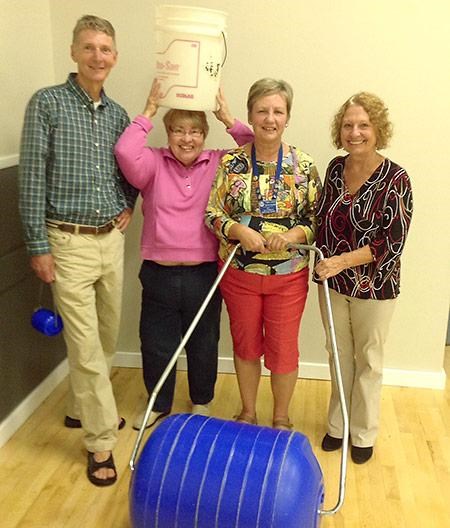Fetching water from a well source to home consumes hours each day for many African women.
During his travels to Africa, Luke Vostermans had seen women carrying five gallon buckets of water on their heads, with babies in their arms.
During a recent presentation to the Rotary Club of Powell River, Vostermans cited United Nations statistics showing women in Africa spend 200 million hours a day to acquire water.
He and his wife Linda Ryan, both members of the Rotary Club of Gibsons, are working to help change that.
They are promoting the Hippo Roller Project. Its innovative yet simple design allows water to be moved easily over long distances. One barrel holds 90 kilograms of water, five times the volume women carry in buckets on their heads. It can meet the basic needs of five people per day.
When he first saw one, Vostermans thought to himself, “Why hasn’t someone thought of this before. This is a pretty simple thing.”
Hippo rollers are manufactured in Johannesburg, South Africa as one solid piece that can take the stress of rolling over uneven ground.
Grant Gibbs, the person who is manufacturing them, has produced only 42,000 to date. He does not have the resources to create more. Each hippo roller costs $150.
Information about the hippo is almost non-existent in North America and Vostermans says their goal is “to get on the cover of Time magazine.”
He recognizes that when money leaves a person’s pocket for someone else’s pocket, there is a desire to know where it goes. “Many times we have no connection to the end result of our donations.”
The couple’s idea is to have the donor’s email address, a photo and personal note placed on the hippo on roller for the recipient so they can communicate.
“There are 650 million cell phones in Africa that are connected directly to a satellite system,” Vostermans explained.
“We should be able to make that communication happen.”
Vostermans and Ryan have set a personal goal to raise enough money to finance 50 hippo rollers. Their plea is “help us roll a thousand hippos.”
Teachers in Sechelt have asked how they can help with fundraising and educating people about hippo rollers.
“Linda and I have been blown away by how quickly this has captured the imagination of people,” said Vostermans.
Empowering women by reducing the number of hours they spend each day fetching water allows them to do other things for their families and communities with that time.
“It’s just a smarter way to do a chore,” said Vostermans. “The hippo roller is a simple little tool that definitely puts smiles on the faces of women. It’s nothing extraordinary here, just a smarter way to move water.”
Before the Rotary meeting ended, Vorstermans and Ryan had a commitment from two Rotarians who are realtors to approach their professional association regarding purchase of 10 hippo rollers.
For more information, readers can check out www.rollahippo.org.



